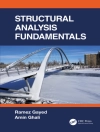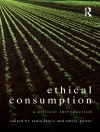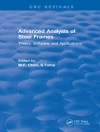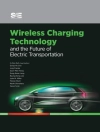This book presents a life-oriented approach, which is an interdisciplinary methodology proposed for cross-sectoral urban policy decisions such as transport, health, and energy policies. Improving people’s quality of life (QOL) is one of the common goals of various urban policies on the one hand, while QOL is closely linked with a variety of life choices on the other. The life-oriented approach argues that life choices in different domains (e.g., residence, neighborhood, health, education, work, family life, leisure and recreation, finance, and travel behavior) are not independent of one another, and ignorance of and inability to understand interdependent life choices may result in a failure of consensus building for policy decisions. The book provides evidence about behavioral interdependencies among life domains based on both extensive literature reviews and case studies covering a broad set of life choices. This work further illustrates interbehavioral analysis frameworks with respect to various life domains, along with a rich set of future research directions. This book deals with life choices in a relatively general way. Thus, it can serve not only as a reference for research, but also as a textbook for teaching and learning in varied behavior-related disciplines.
Tabella dei contenuti
Life-oriented Approach.- Empirical Evidence of Behavioral Interdependencies across Life Choices.- Lifestyles and Life Choices.- The Car-dependent Life.- Household Energy Consumption Behavior.- ICT-dependent Life and Its Impacts on Mobility.- Health-related Life Choices.- Life-oriented Tourism Behavior Research.- Influence of Land Use and Transport Policies on Women’s Labor Participation and Life Choices.- Mobility of the Elderly.- Risky Behaviors in Life: A Focus on Young People.- Adaptation of Behavior to Overcome Natural Disasters.- Mobility Biographies and Mobility Socialisation – New Approaches to an Old Research Field.- Biographical Interactions over the Life Course: Car Ownership, Residential Choice, Household Structure, and Employment/Education.- Household Time Use Behavior Analysis: A Case Study of Multidimensional Timing Decisions.- Models of Behavioral Change and Adaptation.- Behavioral Changes in Migration Associated with Jobs, Residences, and Family Life.- Future Perspectives of the Life-oriented Approach.
Circa l’autore
Prof. Junyi Zhang’s main research interests are in the fields of urban and regional planning, transportation planning, traffic engineering, human behavior survey and modeling, tourism policy, environment and energy policy. As of October 2016, he published more than 360 peer-reviewed papers especially from the interdisciplinary perspective. He has been serving as an editorial board member in more than 10 internationally well-recognized journals and as a reviewer for nearly 40 famous international journals.












